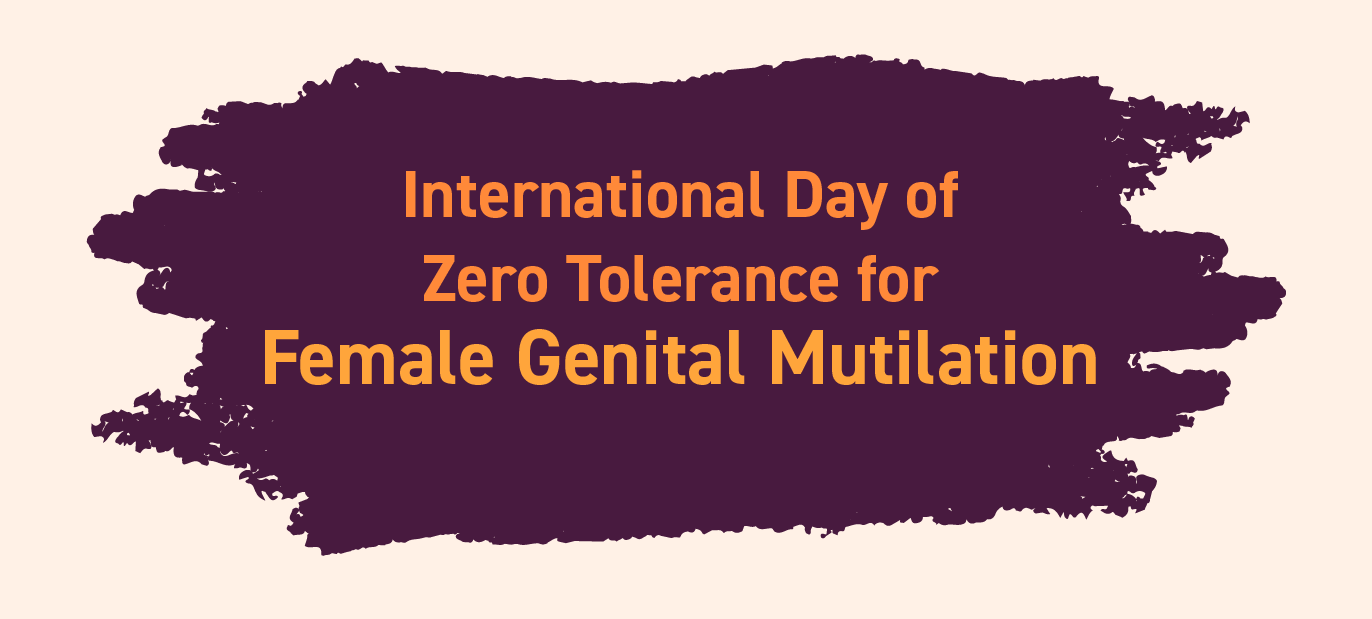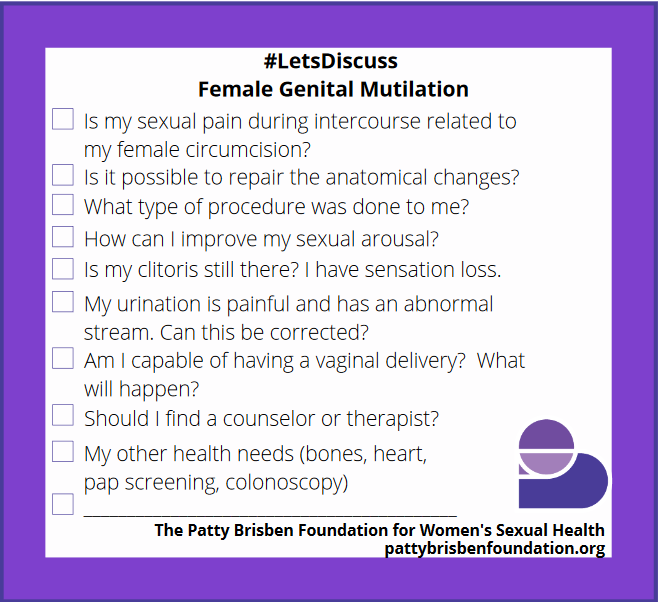International Day of Zero Tolerance for Female Genital Mutilation 2023 is 6 February. At least 200 million girls and women may experience long-term complications from FGM.
Theme
What is the theme of International Day of Zero Tolerance for Female Genital Mutilation?
In International Day of Zero Tolerance for Female Genital Mutilation, 6 February: Ending Female Genital Mutilation By 2030 — Men End FGM — #MenEndFGM the United Nations (UN) elaborate on:
Female Genital Mutilation
What is Female Genital Mutilation (FGM)?
In International Day of Zero Tolerance for Female Genital Mutilation, 6 February: Ending Female Genital Mutilation By 2030 the UN’s definition is:
In Female Genital Mutilation (FGM): Overview the (United Kingdom) NHS (National Health Service) explain:
200+ Million Girls and Women
How common is FGM?
In Female Genital Mutilation, last modified January 2023, UNICEF note:
Long Term Complications
 What can long-term complications of FGM include?
What can long-term complications of FGM include?
In Female Genital Mutilation: No Health Benefits, Only Harm, dated 31 January 2023, the WHO elaborate on:
- Urinary problems (painful urination, urinary tract infections);
- Vaginal problems (discharge, itching, bacterial vaginosis and other infections);
- Menstrual problems (painful menstruations, difficulty in passing menstrual blood, etc.);
- Scar tissue and keloid;
- Sexual problems (pain during intercourse, decreased satisfaction, etc.);
- Increased risk of childbirth complications (difficult delivery, excessive bleeding, caesarean section, need to resuscitate the baby, etc.) and newborn deaths;
- Need for later surgeries: for example, the sealing or narrowing of the vaginal opening (type 3) may lead to the practice of cutting open the sealed vagina later to allow for sexual intercourse and childbirth (deinfibulation). Sometimes genital tissue is stitched again several times, including after childbirth, hence the woman goes through repeated opening and closing procedures, further increasing both immediate and long-term risks; and
- Psychological problems (depression, anxiety, post-traumatic stress disorder, low self-esteem, etc)”.
Health Care Provider
What if I am worried about something down there?
 If you are worried about something – anything – down there, it may be in your best interest to choose to talk to your health care provider about this.
If you are worried about something – anything – down there, it may be in your best interest to choose to talk to your health care provider about this.
In Vulva & Vaginal Irritation: Odour the (Australian) Jean Hailes for Women’s Health explain:
Health Topics A-Z
Where may I find Health Topics A-Z related to International Day of Zero Tolerance for Female Genital Mutilation 2023?
In Health Topics A-Z you may find:
Links
Where may I find Links related to International Day of Zero Tolerance for Female Genital Mutilation 2023?
Your Country may have Links similar to:
Links
This Links List to third party websites is neither comprehensive nor exhaustive. Inclusion on this Links List does not imply endorsement or recommendation. Non-inclusion on this Links List does not imply non-endorsement or non-recommendation. Third party websites are not under the control of Meno Martha International Menopause Directory. Third party websites may contain explicit medical images and/or sexual references. Please read Meno Martha International Menopause Directory’s Links Policy before proceeding to a Link. Please contact Webmaster if you experience a problem with a Link.
- American College of Obstetricians and Gynecologists: Resources for You
- Australian and New Zealand Vulvovaginal Society: Patient Information
- Dr Gail Busby – I Forgot To Ask the Doctor – Episode 9 The Menopause
- Dr. Stephanie Faubion – Genitourinary Syndrome of Menopause
- End FGM European Network
- Female Genital Mutilation
- Female Genital Mutilation
- Female Genital Mutilation
- Female Genital Mutilation
- Female Genital Mutilation
- Female Genital Mutilation (FGM)
- Female Genital Mutilation (FGM) Frequently Asked Questions
- Female Genital Mutilation (FGM): National FGM Support Clinics [United Kingdom]
- Female Genital Mutilation (FGM): Overview [+ Videos]
- Find A Menopause Practitioner [United States and Other]
- Find An AMS Doctor [Australasian Menopause Society i.e. Australia and New Zealand]
- Find Your Nearest BMS Menopause Specialist [British Menopause Society]
- Forward [Foundation for Women’s Health Research and Development, United Kingdom]
- Frequently Asked Questions: Female Genital Mutilation
- International Day of Zero Tolerance for Female Genital Mutilation 2023
- International Day of Zero Tolerance for Female Genital Mutilation, 6 February
- International Society for the Study of Women’s Sexual Health: Find A Provider
- Later Years (Around 50 Years and Over): Menopause and Post Menopause Health – Sexual Wellbeing and Intimacy During and After Menopause [+ Video: Menopause Is the End of Your Sex Life]
- Menopause Patient Information [Videos] 2. Talking To Your GP About Menopause
- Menopause Preparedness Toolkit Video Series: Common Conditions Associated With Menopause and Midlife
- Patty Brisben Foundation for Women’s Sexual Health: Resources

- The International Day of Zero Tolerance for Female Genital Mutilation (FGM) [+ Video]
- Tips To Help Manage Menopause Symptoms
- UN Women statement: International Day of Zero Tolerance for Female Genital Mutilation
- UNFPA-UNICEF Joint Programme on the Elimination of Female Genital Mutilation
- Video Series-2021: Female Urinary and Bladder Issues At Midlife
- Video Series-2022: Discussing Sexual Health Concerns With Your Health Care Professional
- Video Series-2022: Perimenopause, Signs, Symptoms, and Solutions
- Vulva, Vagina, Ovaries & Uterus
- Vulval & Vaginal Irritation: What Is the Vulva? [+ Diagram]
- What Is Menopause?



